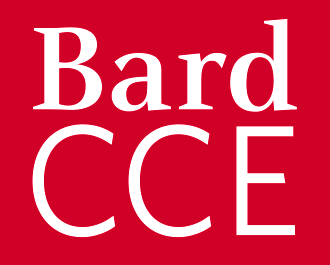Principles of Equity
Equity is defined as the guarantee of fair treatment, access, opportunity, and advancement for all students, faculty, and staff, while at the same time striving to identify and eliminate barriers that have prevented the full participation of some groups.
Working through the lens of equity requires us to do self-reflection, understand structures and systems of oppression that inhibit the realization of our mission, and hold ourselves accountable for our actions. It demands that we strive to create opportunities for students, staff, faculty at Bard and assure that our programs are accessible.
The following articulates core principles that guide our conduct and programs.
It is meant to provide all of us with the understanding on how we are expected to approach our work and to ensure that we are being inclusive and inviting others to join our efforts. It is not so much a set of rules, but guiding principles and expectations against which we will measure our actions and those of the faculty, staff and students with whom we work. The goal is to hold ourselves accountable and to support our mission of educating citizens and encouraging them and actively engage with issues affecting public life.
In articulating these, we recognize that both Bard College and CCE enjoy positions of privilege, that Bard has historically been a predominantly white institution, and that the students, faculty and staff of Bard and Bard’s national and global networks represent increasingly diverse histories, backgrounds and perspectives. In this diversity we find strength, unique insights, and special opportunities to contribute to and learn from the communities and organizations with which we work.
With this in mind, we articulate the following principles.
CCE believes that the following are critical to realizing its mission:
- Promoting projects, initiatives and programs that reflect the diversity of the Bard community and the communities in which we operate, including those explicitly focused on promoting diversity and inclusion.
- Addressing structural inequities and amplifying voices that have not traditionally been heard, particularly those of underrepresented communities.
- Ensuring that we maintain a dynamic and diverse staff through hiring, retention and promotion.
- Providing training and workshops on equity and inclusion for staff, faculty, and students who wish to engage in CCE activities.
We expect that CCE staff and all students, faculty, and staff involved in CCE projects will:
- Examine projects, goals, objectives and strive to eliminate barriers that prevent an inclusive and welcoming environment.
- Assure that project participants participate in regular trainings on diversity and inclusion.
- Be aware of any discomfort they may have when interacting with different groups and communities, acknowledge their biases, and make sure they are seeking out the appropriate resources and trainings to address them.
- Create mechanisms and structures for collecting and responding to feedback and suggestions for more equitable practices.
The heart of CCE’s activities is working with students. In our student-focused efforts, we are committed to:
- Assuring a diversity of student participants in CCE projects and activities.
- Promoting opportunities for all on an equitable basis, regardless of race, ethnicity, or financial resources.
- Creating pathways for participating in Bard’s local, national, and global networks.
- Promoting programming that enhances student and community understanding of diversity and inclusion.
- Recognizing that student leaders from underrepresented communities can add special value to projects and initiatives by using their authentic understanding of issues and community concerns to promote insights and foster mutually beneficial partnerships.
CCE not only operates on Bard’s main campus in Annandale-on-Hudson, but also locally, nationally, and globally with partners in diverse communities.
We recognize that we need to be aware of the norms and needs of these communities and the opportunities our interactions afford us to learn and grow. We strongly believe that partnerships should be mutually beneficial and that they require respect. Cooperation is vital in addressing societal issues and promoting mutual learning. In this context, we are committed to:
- Fostering partnerships that are mutual and reciprocal, recognizing that there is mutual benefit in community engagement or international partnerships and that projects that emerge from within communities can be particularly impactful.
- Partnering with a diverse set of institutions and organizations locally, nationally and globally.
- Ensuring that partners voices are heard on and off-campus, both in terms of the development of projects within communities and engagement within and outside of the classroom on issues where our partners’ perspectives can provide unique perspectives and contribute to greater understanding of important issues.
We realize that we have a special responsibility when we engage with communities and that we must thoughtfully conduct ourselves if we hope to establish durable and meaningful partnerships and have a positive impact.
When CCE staff and the faculty, and students with whom we work engage with communities, we expect that all involved in will:
- Learn about and develop an understanding of the communities in which they work and serve and continue to learn throughout their engagement.
- Demonstrate humility in engagement and recognize that learning is mutual.
- Listen to community partners and ensure that partners have a say in our endeavors.
- Recognize that responsible community engagement focuses on the impact of any projects on the community, and not simply on the development of the student, faculty, or staff.
We recognize that we will not always meet our expectations.
When we fall short, or where conflict emerges, we will attempt to ensure that we create a space where healing and reconciliation of the parties involved can occur. We will expect the same from the students, faculty, and staff with whom we work and will provide support and resources to facilitate this process.
CCE recognizes the privilege it enjoys from the generous philanthropy that has supported it and that with that privilege comes responsibility. Equity is critical to Bard and CCE’s mission and success, and in following these principles, we hope to contribute to a more fair, just, and equitable society.
